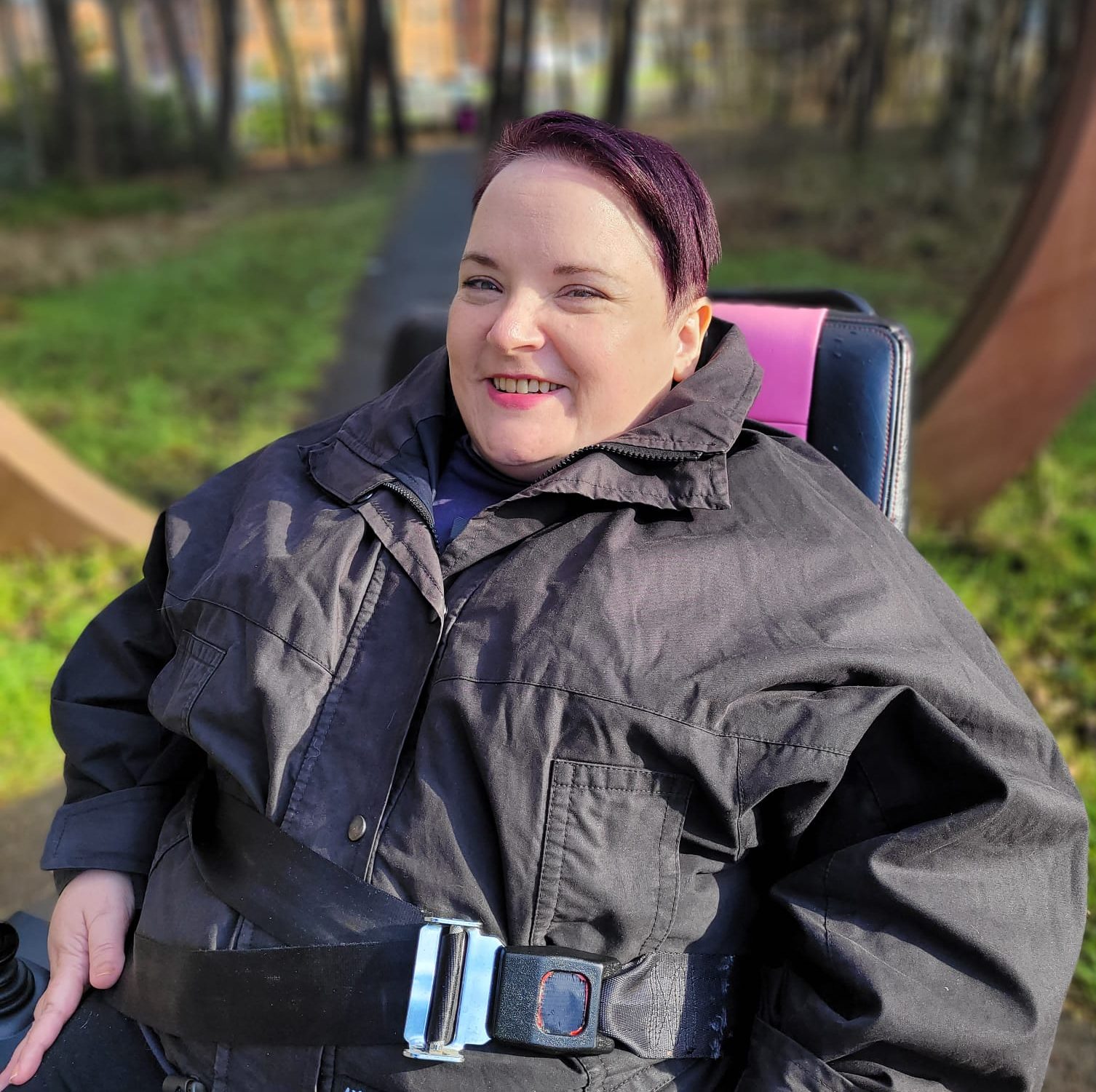
According to data shared by the United Nations, only 2.3% of disabled women hold positions as legislators, senior officials, or managers.
This International Women’s Day, ILF Scotland spoke to Nic Reid, a recipient of our 2015 Fund, wheelchair user and campaigner based in Scotland, about the importance of recruiting disabled women into leadership roles.
Why is it important that more disabled women are in leadership roles?
Because there simply isn’t enough of them. In the UK, 19% of adults of working age have a disability, yet this is not reflected in the government. We also do not have enough women with disabilities in parliament, and as a result our parliament does not reflect the society it works for.
By increasing diversity in our elected officials, we expand the lived experiences and points of view of those making decisions for the wider community. Doing so improves social policy, creates positive change and enhances the living standards for everyone. We do not have that representation for women with disabilities. Decisions are being made without considering the lived experience of the people at the receiving end.
What are the benefits of seeing disabled women in senior positions in government and business?
It’s often said, “You can’t be what you can’t see”. This is accurate when it comes to women with disabilities. Society is set up in a way that forces people with disabilities to feel incapable, everything from opening a door, to moving about a city has been created with able-bodied people in mind. Because of this, people with disabilities are often forced to exist in a world full of impossibilities. I don’t like the word inspiring, but it is inspiring for people with disabilities to see someone else who looks like them in senior roles. After all, if they can do the impossible then why can’t you?
We need more disabled women in leadership roles to show others that it is possible and to motivate young girls with disabilities that they can do anything that they set their minds to.
What barriers do disabled women face when seeking employment?
There are so many barriers. There are barriers in the legal system, obstacles with infrastructure, social prejudice and gender-based discrimination that women with disabilities face when looking for employment. Personally speaking, I have experienced a great deal of prejudice. I am a wheelchair user, yet people often speak to me as though I am deaf or cannot understand them. This ties into a broader perception of people with disabilities as less productive, lazy or unintelligent.
It’s not just me. Research has shown that the greater your disability or health condition the more likely you are to be unemployed. Adults with disabilities are nearly twice as likely to be living in poverty as their able-bodied counterparts. While inequality quotas are designed to help this issue, I think employers will often fill this by using alternative methods that don’t fully support disabled women.
What needs to be done to support more disabled women into leadership positions?
Crucially, we need more funding to help women with disabilities to find employment. This starts at school, ensuring the financial support is there to allow access to higher education settings. The ILF Scotland Transition fund is incredibly helpful in this, as it can support people with disabilities to enrol on a specific course or training (that isn’t funded by another statutory body) which will help them to reach their professional goals, or even purchase a laptop to work from home effectively.
From a business perspective, offering greater flexibility, creating remote working opportunities, and educating staff on the skills disabled people bring to the table are all vital in increasing the employment standards for everyone.
But ultimately, if we want change to take place, we need to see people with disabilities leading those changes.
Thank you to Nic for your contributions to this article.
If you are a disabled person living in Scotland aged between 16-25, and are interested in funding to potentially help build your career, you can apply to our Transition Fund here.
You can also find out more about our 2015 Fund here.
